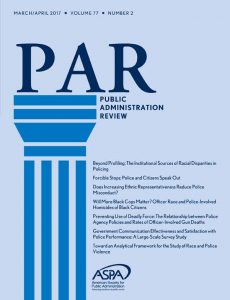Category: Teaching & Learning Guide
When we here at Sociology Lens decided to dedicate July to posts about teaching, I had so much excitement. After all, graduate student advice month had gone over so well, why wouldn’t another themed month that is also relevant. I mean, is teaching not a significant part of what we do as sociologists? But there was one problem… I’ve never taught before. What could I offer in my posts? Really. I had a very difficult time thinking of something, of anything, to offer....
In early April, 2015, a self-driving car completed a 9 day cross country tour from San Francisco to New York City. During the 9 day adventure, the car was fully automated for 99% of the trip – relying on its humans only to enter and exit the interstates. The Audi car supported technology made by Delphi which uses a combination of advanced features already on the market including collision mitigation, integrated radar and camera systems, forward collision and lane departure warning. ...
And so here we are. Four weeks, 14 posts later. It never ceases to amaze me what we here at Sociology Lens have done here: we have created a space for graduate students to offer advice to other students. No where else is there a space specific for students to seek out advice and community, especially Sociology discipline-specific, from other students. I am ecstatic that this is now a resource that students will be able to come to for years. Throughout...
Good writing is crucial to sociology. For sociology to thrive as a discipline we sociologists have to be able to communicate our research effectively to a range of audiences. There are many great writing guides out there (Write for Research is especially good: https://medium.com/@write4research). This list of tips reflects my experience of writing a sociology PhD. It’s by no means an exhaustive or authoritative list and some readers may disagree with some of its items: nevertheless it reflects three years...
A couple of weeks ago, in my Social Issues in Qualitative Methodology course, I was assigned to give a presentation on the “technologies of interviewing.” At first, I was told by older cohort members that I was lucky because I had the easiest topic: “Just do the history of the recorder.” As I googled the topic, thinking that it would then be some cool history and development I found that my predecessors had just done a timeline of photos...
Graduate Student Advice Month Nobody really knows what is like to do a PhD until they do one. I am half way through mine and I still only half know what it is like to do one very specific PhD: my own. Everyone’s experience is unique to their own research topic, their own field site and their own personality, but many of the challenges, pressures and anxieties we encounter are more similar than we realise. We all seem to...
There was a shooting on my campus. A lone gunman entered the first floor of the library last week in the middle of the night and started randomly shooting. Three students were injured and hundreds more hid in the stacks while campus police ended the attack by killing the shooter. As a sociologist, I know too well how our culture has a way of pushing people to the point of breaking,
In a previous post (which can be found here), I mentioned the ‘impostor phenomenon’ and how I and many people I know who work in academia have experienced it in some form or another during their career. The ‘imposter syndrome’ (identified by Clance & Imes, 1978, pp. 1-2), the feeling that leads the self-declared impostors to believe that they are not intelligent and that anyone who thinks otherwise has simply been fooled, is usually accompanied by a fear that one...
Nobody really talks about how or why his or her research failed, or what you are supposed to do when you can see that the fieldwork you are in the middle of might be doomed. Those who decide to leave their research uncompleted rarely write up their experiences, and so the lessons that can be learnt about what not to do during your research, and how to avoid a similar outcome, are forever lost in the private notebooks of the...
Over the past few months, numerous publications have discussed – and mostly: dismissed – the trend to incorporate so-called trigger warnings into the college classroom and syllabus. Trigger warnings have become a standard practice for articles in feminist blogs and other online media that discuss incidences of violence, sexual assault and that may contain other potentially ‘triggering’ material, with the purpose of giving readers a way to opt-out of exposing themselves to said material. As some college professors have started...
When I picked my friend’s nine year old daughter up from school last week the first thing she said to me was, “We had to do something really weird in class today. The teacher paired all the girls with a boy and we had to be a married couple.” It turns out the teacher was having her students work on writing dialogue and since it was right before Valentine’s Day she thought it would be cute for them to write...
A few weeks back, I contributed a post highlighting possible explanations for the rise of criminal justice based practices within schools. Although these strategies have become popular for managing school crime, growing evidence suggests they are often overly excessive and may produce a host of unintended consequences. Serving as a sort of a Part II, this essay outlines the effects of what has been termed the “criminalization of school discipline” (Hirschfield & Celinscka 2011). As discussed below, the evidence stands...
Over the past two decades, schools across the U.S. have adopted a host of punitive practices and policies to prevent and respond to student misbehavior (Kupchik 2010). These practices include the use of security cameras, metal detectors, drug-sniffing dogs, and the full-time presence of police officers. Consequentially, the distinction between school discipline and criminal justice has become highly blurred. For a host of reasons, there has been an increase in surveillance over students and a tighter link between the education...
There can be little doubt that schools across the nation have experience notable budget cuts since the recent economic fallout. Without protection from larger economic trails, educational systems have had to manage substantial budget cuts and reductions in available resources. Across different media platforms, new articles are peppered with headlines concerning the myriad of challenges schools are now facing. Despite financial tightening and limited avenues for support, it is clear that school performance has not escaped popular attention. With initiatives...
This article discusses some of the fundamental flaws in game theory and discusses agent based modelling as a successor to model social emergence. Axelrod (1984) made a major contribution to Game Theory in his book “Evolution of Cooperation” but thirteen years later he, dissatisfied with game theory, moves onto agent based modelling to rework his view of cooperation in his book in 1997 “The complexity of Cooperation: Agent-based Models of Competition and Collaboration”. In a similar move, the Santa Fe Institute in the US was established in...
This summer, I tried something new with my sociology of gender class. Rather than assigning a traditional textbook or a reader, I had the class read a work of fiction based on social science research (along with a few topical nonfiction works). I was nervous to see if my students, who are used to big lecture halls and multiple choice tests, would feel comfortable discussing the novel and would come away from the class with a better understanding of...






